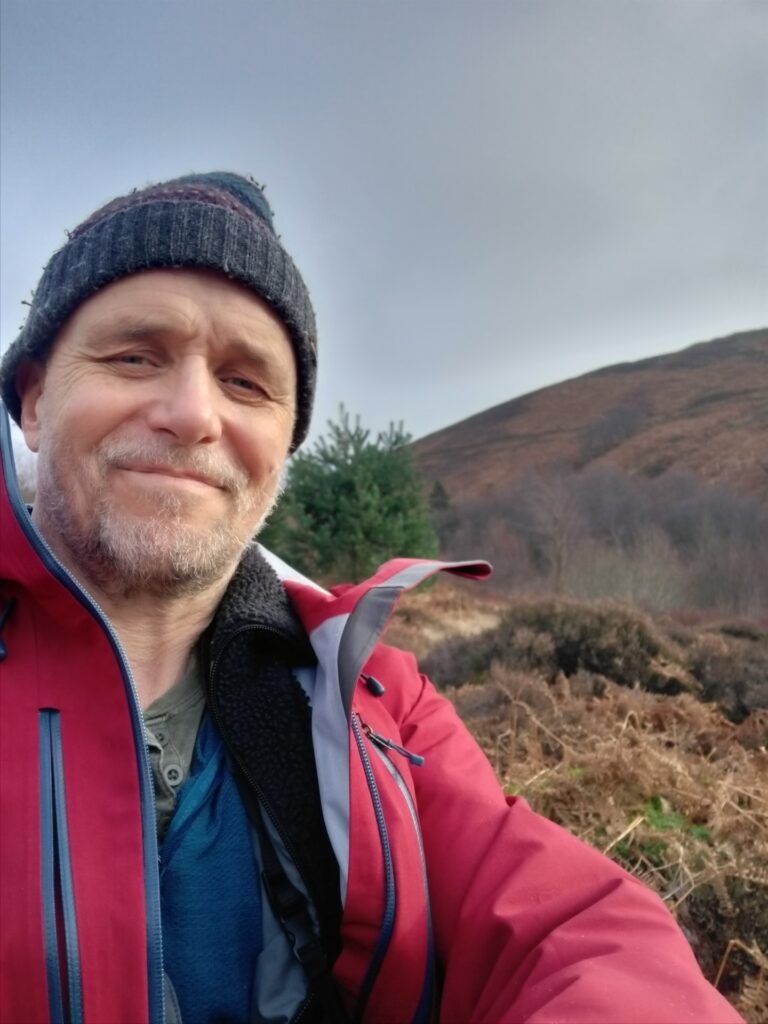
In the summer of 2019, I suffered a pituitary apoplexy. This sudden bleed into the pituitary gland fundamentally changed my way of being.
Not only did I require a full six months off work, but I was also plunged into dependency on medicines – hydrocortisone and desmopressin – and managing a set of homeostatic functions that had been invisible (urine output, fluid intake, monitoring everyday feelings of tiredness, “brain fog”, and needing to moderate hydrocortisone doses by analysing levels of stress – either internal and emotional, or external such as infections etc). And I was tired the whole time, a form of deep existential exhaustion. I became easily exhausted after exercise, or if I was over stimulated thinking at work, or indeed after socialising. I had settled into these newly acquired rhythms of life, struggled with the psychological consequences of the new way of being, and had convinced myself that these were permanent changes to which I had to adapt.
But after a couple of years things started to change.
I first noticed that I was concentrating my urine, and I just got this feeling that I no longer required the desmopressin. I had been planning trips into town by way of public or easily accessible toilets – when you suffer from diabetes insipidus, when you need to go, you really need to go – but the gaps between going to the toilet were increasing. I had been taking desmopressin at night, to allow me to sleep, but then not urinating in the morning either. I halved the dose, then increasingly just left evening doses out. I had the suspicion that taking the desmopressin was doing me more harm than good.
And then when I felt unwell, dizzy, as had happened several times, I would be off to the hospital to have my sodium levels checked. I could never rule out that I might not be in the beginnings of an adrenal crisis, and the previous two times had revealed dangerously low sodium levels, and drips of hydrocortisone had been put up. But the last time this happened my sodium levels were returned normal. It was not an incipient adrenal crisis. The consultant gave me the good news that the repeat MRI scan of my brain revealed a pituitary that appeared recovered from a bleed. I went in for a synacthen test – the proxy indicator for measuring our abilities to produce cortisol – and this was normal: I received a message from the consultant asking if I was certain that I had not taken my hydrocortisone that morning (you have to leave off the morning dose for the test to be meaningful). The results indicated that my pituitary was producing cortisol within the normal range. I asked if this meant that I could stop abiding the sick day rules – that is putting up the hydrocortisone dose in response to stress (concurrent infections, dental or surgical procedures, or extreme emotion distress) and he said yes – in fact, I could stop the hydrocortisone completely.
Having convinced myself that I was dependent on desmopressin and hydrocortisone for the rest of my life, I now had the opposite psychological issue. I had to readapt to the fact that I was no longer suffering from hypopituitarism and adjust accordingly. This was not the joyous emotional relief that you might think, as it took me several months to no longer carry around my emergency vial of hydrocortisone; and I carried on wearing my dependency bracelet. I had come to rely on medicine’s authority and reassurances in the absence of my body’s ability for homeostatic adjustment. Could I now trust my body again to deal with these issues on its own, that so many of us just take for granted? The sense of vulnerability of a failing body left its trace.
Objective numbers, normal returning tests, and scans do not translate into subjective feelings of wellness. How do I feel in myself? I am not the person I was pre apoplexy, in that I tire easily both physically and cognitively. Prior to the apoplexy I had been striving to climb all the Scottish Munros (mountains over 3000 feet), and although I can still get into the hills, I no longer have the stamina, or the motivation to continue climbing as I did. Yet this is not so bad, as with my slowing down I now appreciate that which is closer to home, more sedentary walks, but ones where I take in more of my surroundings. My appreciation of the beauty of nature has increased. I can no longer work late into the evening as I used to, and this too is not a bad thing, I engage more with my family and am better at relaxing. I now realise my limitations.
I have slowed down, and in many senses, this is a gift – the gift of illness. We cannot take our bodies and health for granted. We can become ill, and seriously ill, at any time. It is our lot in life. I’d like to think I live more in the moment and am more appreciative of what life has to offer.







